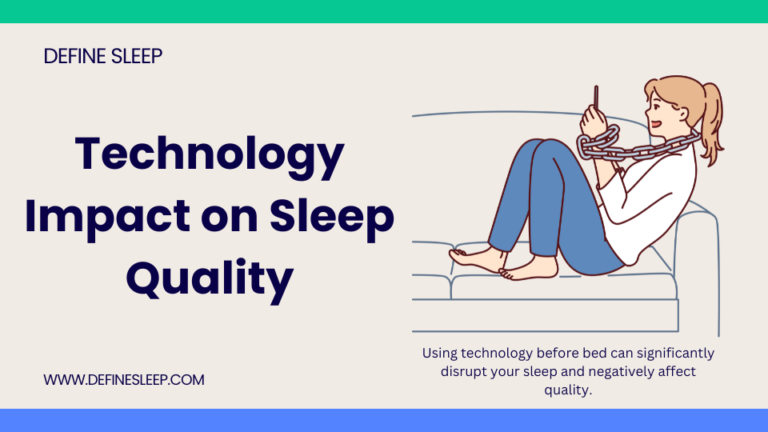Introduction:
In the fast-paced world we live in, with hectic schedules and endless responsibilities, achieving a consistent sleep and wake routine can seem like an elusive goal. Yet, the impact of maintaining such a routine goes beyond simply meeting your daily timetable – it significantly influences your overall well-being. In this article, we’ll delve into the multifaceted effects of adhering to regular sleep and wake times, shedding light on both the physical and mental aspects of a balanced sleep routine
1.1: Understanding the Body’s Internal Clock:
At the core of the importance of consistent sleep and wake times lies the body’s internal clock, also known as the circadian rhythm. This intricate system regulates various physiological processes, including sleep-wake cycles, hormone production, and body temperature. When we maintain a consistent sleep schedule, we align ourselves with this natural rhythm, promoting optimal functioning of our biological processes.
1.2: The Physical Benefits of a Consistent Sleep Routine:

1: Enhanced Immune Function:
Adequate and consistent sleep is closely linked to a robust immune system. Research suggests that individuals with irregular sleep patterns may be more susceptible to illnesses. By prioritizing a regular sleep schedule, you provide your body with the necessary time to repair and strengthen its defense mechanisms.
2: Optimal Hormonal Balance:
Hormones play a pivotal role in regulating various bodily functions. Disrupting your sleep-wake cycle can lead to imbalances in hormones such as cortisol and melatonin. Consistent sleep patterns help maintain the delicate equilibrium, contributing to better stress management, mood stability, and overall hormonal health.
3: Improved Cognitive Function:
The cognitive benefits of quality sleep are profound. A well-regulated sleep routine supports memory consolidation, problem-solving skills, and overall cognitive performance. Conversely, irregular sleep patterns may impair these functions, leading to difficulties in concentration and decision-making.
1.3: The Psychological Impact of Consistent Sleep:

1: Mood Regulation:
The relationship between sleep and mood is intricate. Regular sleep patterns are associated with better emotional well-being and a reduced risk of mood disorders. Adequate sleep allows the brain to process emotions effectively, enhancing resilience to stressors and promoting a more positive outlook on life.
2: Stress Reduction:
Chronic sleep deprivation can elevate stress levels, contributing to a vicious cycle that further disrupts sleep. Establishing consistent sleep and wake times can break this cycle, fostering a more relaxed and resilient mind. The impact is not only felt in daily stress management but also in long-term mental health.
3: Enhanced Creativity and Problem-Solving:
A well-rested mind is often more creative and adept at solving complex problems. Consistent sleep provides the brain with the necessary downtime to consolidate information, make connections, and generate innovative ideas. This can be a game-changer, both in personal and professional pursuits.
1.4: Tips for Establishing a Healthy Sleep Routine:

1: Set a Consistent Bedtime:
Aim to go to bed and wake up at the same time every day, even on weekends. This helps regulate your body’s internal clock.
2: Create a Relaxing Bedtime Ritual:
Engage in calming activities before bedtime, such as reading, meditation, or gentle stretching. This signals to your body that it’s time to wind down.
3: Limit Exposure to Screens:
The blue light emitted by screens can interfere with the production of melatonin, the sleep-inducing hormone. Try to minimize screen time at least an hour before bedtime.
4: Optimize Your Sleep Environment:
Ensure your bedroom is conducive to sleep – cool, dark, and quiet. Invest in a comfortable mattress and pillows to enhance your overall sleep quality.
5: Watch Your Diet:
Be mindful of your food and drink intake, especially in the evening. Avoid heavy meals close to bedtime, and limit caffeine and alcohol consumption.
conclusion:

In conclusion, the impact of consistent sleep and wake times extends far beyond feeling rested in the morning. It is a cornerstone of overall well-being, influencing physical health, mental resilience, and cognitive abilities. By prioritizing a regular sleep routine and making it a non-negotiable aspect of your daily life, you empower yourself to lead a healthier, more fulfilling existence. Sweet dreams await those who embrace the profound benefits of a balanced sleep-wake cycle.
FAQ
Q1: Why is it important to have consistent sleep and wake times?
Consistent sleep and wake times are crucial for aligning with the body’s circadian rhythm, promoting optimal functioning of physiological processes, and supporting overall well-being. A regular sleep routine contributes to enhanced immune function, hormonal balance, and improved cognitive performance.
Q2: How does a consistent sleep routine impact physical health?
Maintaining a consistent sleep routine positively influences physical health by boosting immune function, regulating hormonal balance, and supporting cognitive functions. Adequate and quality sleep is linked to a reduced risk of illnesses, improved stress management, and better overall health.
3Q: Can irregular sleep patterns affect mood and mental health?*
Yes, irregular sleep patterns can have a significant impact on mood and mental health. Consistent sleep is associated with better emotional well-being, stress reduction, and increased resilience to mood disorders. Chronic sleep deprivation may elevate stress levels and contribute to long-term mental health challenges.
Q4: What are some practical tips for establishing a healthy sleep routine?
Setting a consistent bedtime, creating a relaxing bedtime ritual, limiting screen time before sleep, optimizing the sleep environment, and being mindful of diet are key tips for establishing a healthy sleep routine. These practices help signal to the body that it’s time to wind down and contribute to better sleep quality.
Q5: How does a well-regulated sleep routine contribute to creativity and problem-solving?
A well-rested mind is more creative and adept at solving complex problems. Consistent sleep provides the brain with essential downtime to consolidate information, make connections, and generate innovative ideas. Prioritizing a regular sleep routine can positively impact both personal and professional pursuits by enhancing cognitive abilities.
Help From Chatgpt 4





I am truly thankful to the owner of this web site who has shared this fantastic piece of writing at at this place.
I do believe all the ideas youve presented for your post They are really convincing and will certainly work Nonetheless the posts are too short for novices May just you please lengthen them a little from subsequent time Thanks for the post